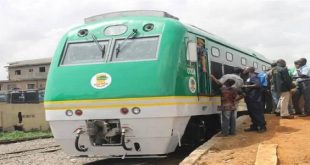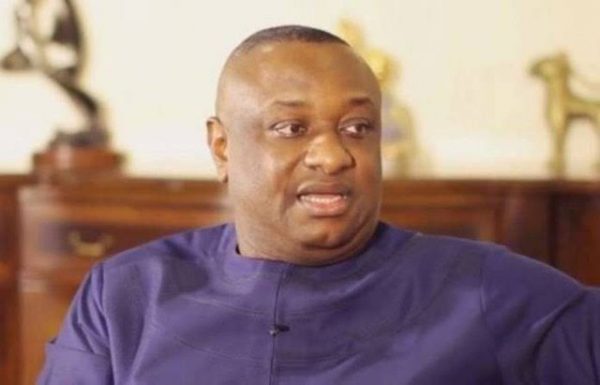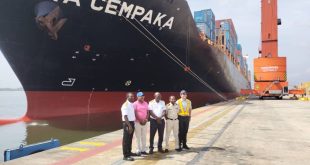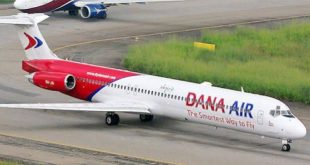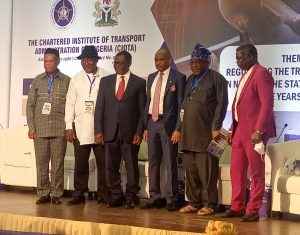
By Kenneth Jukpor
Transport experts have warned of an impending logistics disaster in Lagos with over 3,000 tankers expected to transit on the Lekki corridor daily following the emergence of Dangote Refinery at the Lekki Free Trade Zone.

Speaking at the ongoing 3rd National Transport Summit of the Chartered Institute of Transport Administration (CIoTA) in Abuja, the transport veterans lamented that technical inputs and recommendations on the need for railway and pipeline connection to the refinery have been jettisoned.
A former Permanent Secretary, Lagos State Ministry of Transport, Dr Taiwo Salam said; “Lekki Free Trade Zone is four times the size of Victoria Island and it is divided into four parts. I was the Technical Chairman and I handled the Traffic Impact Assessment. A very large company has built a refinery and I advised that 50% of the refinery’s products be shipped away via vessels while the other 50% through pipelines. However, with no pipeline provision, over 3,000 trucks would be needed to move out 50% of the refined products on daily basis.”

He argued that a pipeline should have been constructed to link the Lekki Free Trade Zone to the Ijebu-Ode/ Ore road.

“There’s a huge land mass along that Ijebu-Ode/ Ore corridor, so a huge tank farm could be situated there and tankers wouldn’t have to create disasters on the Lekki roads and all the communities the tankers would pass before getting to Ijebu-Ode. As I’m talking to you, political sense outweighed my technical advice.”
Recall that several Chief Executives of transport agencies including the former Executive Secretary of Nigerian Shippers’ Council (NSC), Mr. Hassan Bello and former Managing Director of Nigerian Ports Authority (NPA), Hadiza Bala-Usman have stressed the need for railway and pipeline connection to Lekki to avoid the port access crisis that characterizes Apapa and Tin Can ports.
Meanwhile, the Managing Director of Nigerian Railway Corporation (NRC), Engr. Fidet Okhiria has told our correspondent that connecting Lekki by railway isn’t on the federal government’s rail masterplan, urging private operators to take up the burden.
The Technical Director, Drill Bits at Template Design Limited, Engr. Bala Zakka charged the Nigerian government to deepen investments in pipeline mode of transportation and explore the mode for other purposes.
Zakka who presented a paper titled, “Technical and Safety Regulation of Pipeline Transportation in Nigeria”, stressed that pipeline linkages could also be used for water desalination, sewage control, fertilizer distribution, among other uses.
He, however, opined that the burden of regulation and policy development that would lead to transformational changes and investments in the nation’s pipeline mode of transport rests on CIoTA as a body of professionals.
In his remarks, Dr. Kayode Opeifa advised the regulation of pipelines in the country be transferred to the Ministry of Transportation, noting that until should change occurs the role of pipeline would be limited to oil and gas products.
Opeifa also recommended that the federal and state governments to seek the input of transport experts in the locations when building roads to obtain best analysis on right of way and other peculiar details of the roads.
In his paper, the Chairman of the Education and Training Committee of CIoTA, Prof. Callistus Ibe lamented that the road transport sector in the country is bedeviled by multiple obsolete regulations.
Prof Callistus who presented a paper on “Technical and Economic Regulation of Road Transport in Nigeria”, observed that there is no regulation for the impending administration of toll gates for the roads.
He also called for the introduction of special trade licenses for vehicle repairs and transport operators, noting that such regulation would sanitize the practice.
 MMS PLUS NG – Maritime, Aviation, Business, Oil and Gas News Online Newspaper with coverage in Maritime, Oil and Gas, Aviation, Power and Energy as well as Financial News
MMS PLUS NG – Maritime, Aviation, Business, Oil and Gas News Online Newspaper with coverage in Maritime, Oil and Gas, Aviation, Power and Energy as well as Financial News



